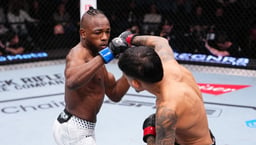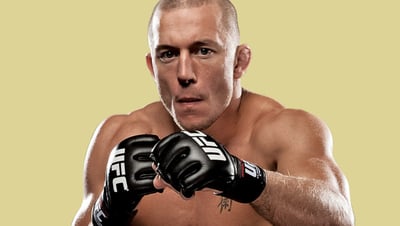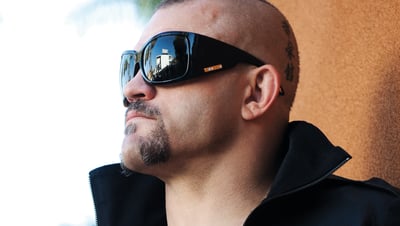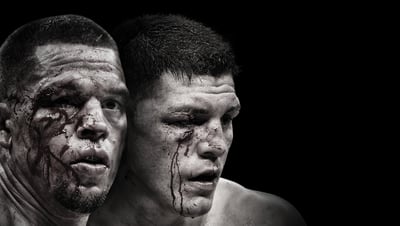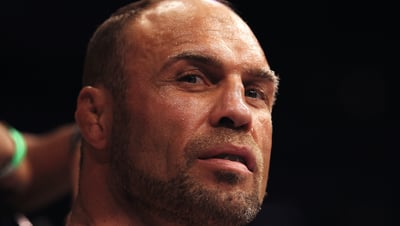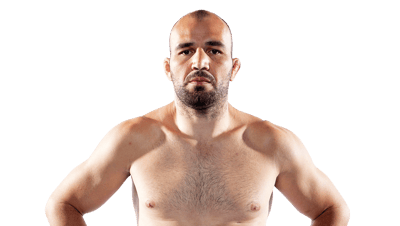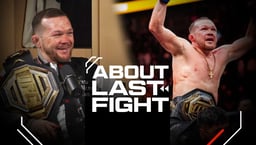The former UFC heavyweight champion talks near-death experiences, training wisely and battling through adversity.
Q: What was it like for you coming into professional MMA at 22 years old?
Mir: “I wasn’t expecting to get paid or anything. It’s a double-edged sword. If you get into the sport too early before you’re ready then I think your learning curve is faster because the stress of having fights and being ready for them causes you to learn things quicker and to develop as a person better. On the other end of that, if you wait a bit longer and establish yourself more, some of your fights will be easier.
It’s one of those things where if I was managing a guy I’d probably hold him off. If I was the fighter himself I’d jump in as soon as possible.”
Q: Do you think it’s a smart move having an amateur career?
A: “I think so yeah. The amount of abuse you can take in an amateur fight is limited. There’s two-minute rounds and no elbowing so you’re not gonna get cut up too badly. It enables a fighter to learn and it’s a step up from sparring in the gym before going into a pro fight where, if things are going bad, it can hurt people’s confidence more.
A great thing I tell the amateur guys I coach is that it doesn’t count too much; it ain’t gonna be on your record.
This is just glorified sparring that a bunch of people are watching. You’re 0-0 when you go pro whether you’ve won 20 amateur fights or lost 20.”
Q: Between going pro at 22 then right up to this day, what’s the biggest obstacle that you’ve overcome in your life?
A: “Besides the big stuff that everybody knows about I think it’d be learning how to train properly.
The other day I was talking to someone and I had to explain to him that no matter how much he runs he can never personally run a five-minute mile. His genetics are incapable of it whether he trains every single day. Same thing with bench pressing 400lb.
There are some guys who go to the gym every day and never come close to that. So why all of a sudden do we think that in fighting cardio and strength are limitless? You must learn what your body is capable of doing and pushing it to its limits and learning how to effectively use that inside the ring.”
Q: You had a horrific motorcycle accident. What advice would you give for up-and-coming fighters who suffer from injuries?
A: “People have gotta realize that when you have a major injury like that where you can’t get out of bed the right way and brushing your teeth hurts, it’s in your head. As a fighter you didn’t have that before.
You had that reckless abandon where you’d just go forward but now you have that voice going, ‘Wait!’ If you have a major injury in the UFC there’s no easy fights. In hindsight, I probably would have asked to get out of my contract and gone to some lower shows and tested my leg out there first.”
Q: Is it good to be the best guy in the gym?
A: “No, not necessarily. It can be overcome though. You just have to put yourself in a situation where your trainers can beat you. For example, if you’re the best guy in the clinch then let them start off in a better clinch and let them fight out of it and work on it.
There is gonna come a time where you are the better guy in the gym but you can always break things apart and drill things.”
Q: What advice can you give to train effectively?
A: “There’s a lot of guys who don’t understand why they learn one facet of martial arts easily. Usually, people say whatever martial arts a guy starts off at then that’s their go-to when they get hurt.
It just happens to be that they spent the most time training that singularly. If you spend too much time training too many things at once you’re gonna be bad at all of them.
Every time your nervous system sets itself for one discipline with certain movements in one sport and then you’re re-training it within hours in another sport, then that’s when it turns into mush and comes down to a simple question of cardio.
If you just diligently separate your training days for a discipline each day then condition around it then your brain will imprint it.”
Q: Is there something that a champion has that is different to everyone else?
A: “I don’t think it’s anything that a champion does but rather things that a non-champion doesn’t do. We all have reasons to quit being on the path: fights that didn’t go our way, personal lives not being straightened out properly, bad luck of all sorts.
We all have it in different measures of our life but the people who make it to be a champion are the ones who just keep working through it. Champions tumble but get back up and come out stronger.”
...

